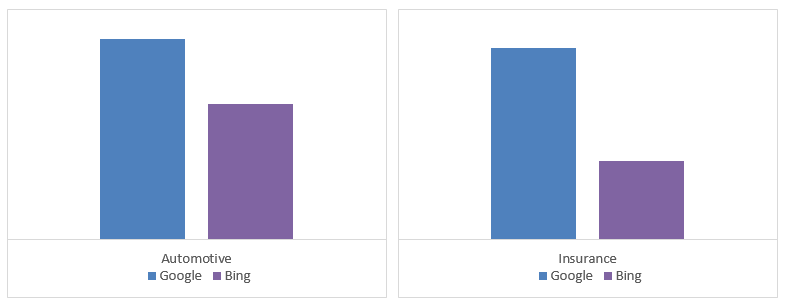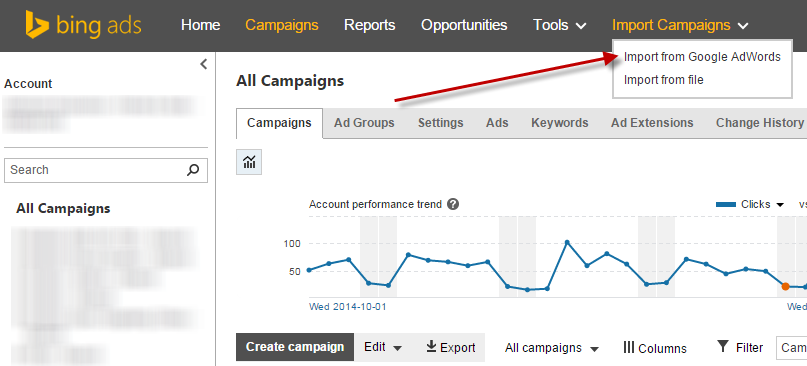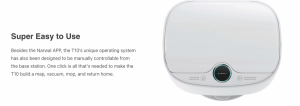![]() by Lindsey Knapton December 19th, 2014
by Lindsey Knapton December 19th, 2014
As an advertiser, one of the questions I often get asked is “How do we get more?”. One of the easiest answers is Bing. For most accounts, Search is the strongest venue for driving qualified traffic and ultimately conversions. If AdWords Search is maxed out, one simple way to increase reach is by using Bing Ads. According to Search Engine Land, in 2013 only 55% of advertisers that were running AdWords were also running Bing Ads. If you’re not using Bing Ads, you’re potentially missing a big opportunity.
Why You Should Also Be Using Bing Ads:
1. Extend Your Reach
According to Bing, Bing Ads reach 15 million unique searches on the Yahoo! Bing Network, meaning searches that are NOT on Google. This accounts for 10% of the search market in Canada. So while I’m not recommending that you move all of your advertising budget to Bing, there is definite opportunity to reach a new audience using Bing Ads.
2. Reach An Older, Higher Income Demographic
According to Bing, the Yahoo Bing Network audience tends to have higher household incomes, and skew older with over 75% of searches 35+. This likely goes hand in hand with the fact that their audience spends 26% or more online than the average internet searcher, and 12% more than Google Searchers in Canada.
3. Cheaper CPC’s
Personally, this is my #2 reason for recommending Bing Ads to clients. When compared to Google AdWords, we tend to see CPCs that are much lower on Bing Ads. This is a great way to make your media dollars go further, especially for industries that are becoming increasingly competitive.
o In a recent case study, we found that in the Automotive Industry CPCs were on average 32.5% lower in Bing Ads when compared to Google AdWords.
o In a second case study, we found that in the Insurance Industry CPCs were on average 59.2% lower in Bing Ads when compared to Google AdWords.
4. Higher Engagement/Conversion Rates
Now this is absolutely my #1 reason for recommending Bing Ads to clients. Not only are you paying less for each click in Bing Ads, but users that do click tend to be more engaged with sites and convert at much higher rates.
o In the same case study in the Automotive Industry, we found that users were converting in Bing Ads at 10% – 56% higher rates than Google AdWords.
5. Easily Import Directly From Adwords
Now that we have our reasons for recommending Bing Ads, it couldn’t be simpler to get your campaigns started. Bing Ads has a feature that will allow you to import your campaigns directly from Google AdWords. Within a few clicks you can have your campaigns up and running, and the best part is that all of the hard work you’ve done on your AdWords campaigns will be mirrored over to Bing Ads.
I would caution you to double check your campaigns once you’ve imported them, to ensure that the targeting, settings, and ad copy have all imported correctly.
6. Bing Analytics
Bing Ads has just recently launched Universal Event Tracking. Now it’s easier than ever to track goals within Bing Ads, making it easier to gauge ROAS. The new features will give you deeper insight into your campaign performance, with metrics such as bounce rate, pages per visit and duration per visit.
Things To Keep In Mind:
1. With a lower market share you will inevitably have lower search volume on Bing versus Google, so don’t be surprised if you don’t drive a ton of traffic in certain cases.
2. Though Bing has been making huge improvements, we find that their Interface is not as user friendly as AdWords which can be frustrating.
3. If you use Google Analytics, Bing Ads also has auto-tagging available. Be sure to enable this to pull in data to GA.
4. Bing Ads has a nice feature that AdWords is currently lacking, the ability to set a monthly campaign budget.
5. Bing Ads Editor (essentially the same as AdWords Editor) can easily become your best friend when working with Bing Ads.
If you liked this, you might also also enjoy Keyword Research With The Excel Bing Ads Intelligence Add-in
The post Currently Running AdWords? Here’s Why You Should Also Be Using Bing Ads appeared first on Search Engine People Blog.
(592)
Report Post







